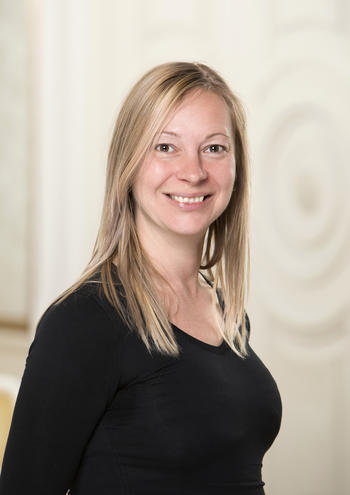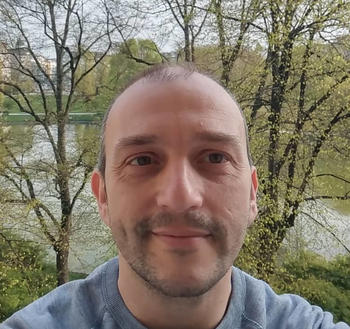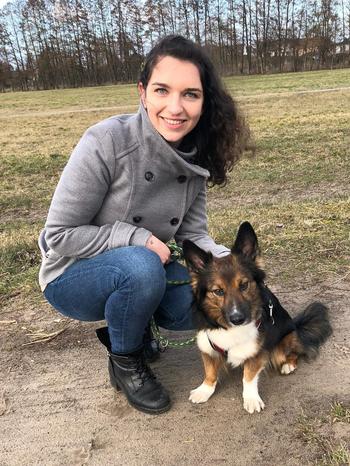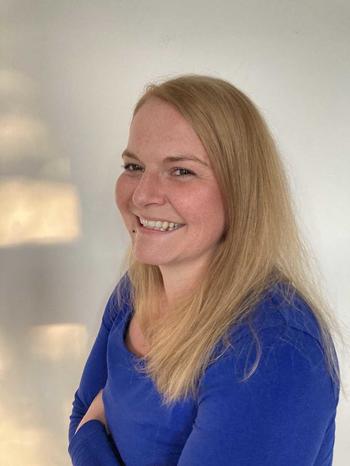Nowick Group - Human Biology
Homepage:
www.nowick-lab.info
Address:
Freie Universität Berlin, Institute of Biology
Königin-Luise-Str. 1-3, 14195 Berlin
Prof. Dr. Katja Nowick
(She, Her, Hers)
| Email: katja.nowick@fu-berlin.de| Room 101 | Tel.: +49 30 838 63761 |
Dr. Nowick performed her doctoral work at the Max-Planck Institute for Evolutionary Anthropology in Dr. Svante Pääbo’s lab on transcriptome evolution in primates and the functional characterization of FOXP2. She joined Dr. Lisa Stubbs’s lab at the Lawrence Livermore National Laboratory for her postdoctoral work in 2006 to study the evolution of zinc finger transcription factors in primates. The lab relocated in 2008 to the University of Illinois at Urbana-Champaign. In 2010 Dr. Nowick returned to Germany, to join the department of Dr. Hans Lehrach at the Max-Planck Institute for Molecular Genetics in Berlin. In 2011, she received an Advanced Postdoc award from the Volkswagen Foundation to start her own independent research group at the University of Leipzig within the group of Dr. Peter Stadler. The focus of her work since then is on how changes in gene regulatory factors, such as transcription factors and non-coding RNAs, and their networks contributed to species evolution. In 2016, she was appointed as professor for Bioinformatics at the University of Hohenheim. In summer 2017, she accepted the offer from Freie Universität to become a professor for Human Biology. Being affiliated with the Institutes for Biology and Bioinformatics, the group continues to employ wet-lab, genomics, transcriptomics, and computational methods to functionally study the molecular basis of primate and brain evolution. She is a founder of the “Programming for Evolutionary Biology” school and an editor for the journal Molecular Biology and Evolution (MBE).
Ute Gebhardt
(She, Her, Hers)
| Email: ute.gebhardt@fu-berlin.de | Room 020 | Tel.: +49 30 838 55917 |
Britt Schaffranietz
(She, Her, Hers)
| Email: b.schaffranietz@fu-berlin.de | Room: 115 | Tel.: +49 30 838 75608 |
Vladimir Jovanović “Vladi”
(He, Him, His)
| E-mail: vladimir.jovanovic@fu-berlin.de | Room 101 | Phone: +49-30-838-65041
Vladi is sharing his work between the Bioinformatics Solution Center and the AG Nowick. Within these groups, he is interested in: the evolution and specific functions of gene regulatory factors in primates, random monoallelic expression of genes in neurodegenerative diseases like Alzheimer's, and human genetic diseases in general, but also in some not so related themes like rodent phylogeny or variation of relatedness within macaque communities.
Vladimir Bajić “Baja”
(He, Him, His)
| E-mail: vladimir.bajic@fu-berlin.de | Room 115 |
Baja is interested in human population genetics, human evolution, and anthropology. Particularly, he is interested in sex-biased migrations and admixtures. Some of the best-known examples of sex-biased migrations are those from historic periods. For example, the trans-Atlantic slave trade and European colonization of the Americas were both predominantly male-biased. These migrations coupled with cultural practices resulted in sex-biased admixture. This is why we find higher frequencies of “European” Y chromosome haplogroups than “European” mtDNA haplogroups in admixed Native-American and Afro-American populations. In his current project, he is using simulations in order to understand better the interplay between the choice of the genetic markers used to estimate sex-biased gene flow, the time since the admixture, and the strength of the sex bias.
Jeong-Eun Lee “Ama”
(She, Her, Hers)
| Email: hermes1130@zedat.fu-berlin.de | Room 101 |
Ama is working on comparative functional characterization of ZEB2 in developing primate neurons. The main focus of this project is revealing the biological secrets of the human brain evolution. Our DNA sequence differs from e.g. chimpanzees only by 1 %, however, our brain function is remarkably high-dimensional and very unique: cognitivity. So far, we know that several transcription factors (TFs) are dominantly human-specific in the brain compared to other non-human primates. ZEB2 is one of them and this TF shows a particularly high protein sequence conservation across many species, while its function seems to differ from species to species. To understand how evolutionary changes in ZEB2 affect gene regulatory network differences between species in the brain, sequencing data of neuronal cells (control/ZEB KO) that are differentiated from induced pluripotent stem cells (iPSCs) will be generated and analyzed.
Fatemeh Zebardast “Tima”
(She, Her, Hers)
| E-mail: timaz@zedat.fu-berlin.de | Room 115 |
In her current research, Tima focuses on the co-expression network of protein-coding genes and non-coding RNAs underlying Alzheimer's disease. She has a particular interest in the role of micro RNAs and long non-coding RNAs in human diseases.
Yao-Chung Chen
(He, Him, His)
| E-mail: yao-chung.chen@fu-berlin.de | Room 115 |
His research project is about developing bioinformatic tools to find differential expression of transposable elements and transcription factors between humans and primates. He is also interested in implementing different algorithms to find the patterns of allelic expression signatures in cells from Alzheimer’s Disease patients.
Rebecca Saager
(She, Her, Hers)
| E-mail: rebecca.saager@fu-berlin.de | Room 115 |
For her PhD project, Rebecca is investigating the effect of long-term exposure to low-dose radiation on the brain. This is done by analyzing and comparing RNA-Seq data from different brain tissues of rodents from the Chernobyl exclusion zone using different transcriptomic methods.
Melanie Sarfert “Meli”
(She, Her, Hers)
| E-mail: melanie.sarfert@fu-berlin.de | Room 115 |
In her current research, Meli is interested in the evolutionary mechanisms of skylight navigation across insect species. Using bioinformatic approaches, she is investigating the structure and function of neuronal circuits.








